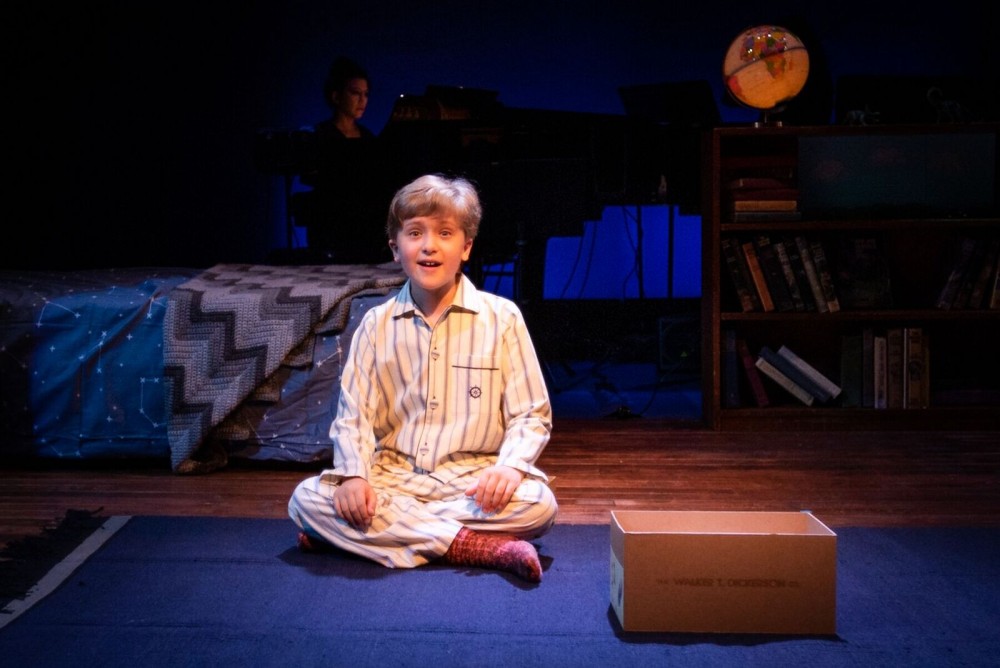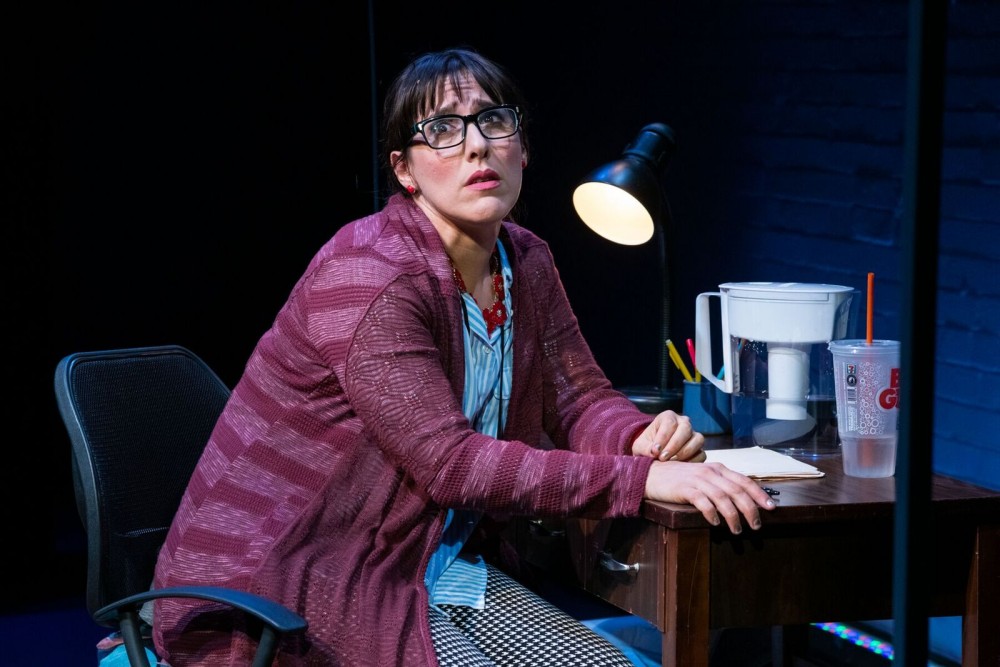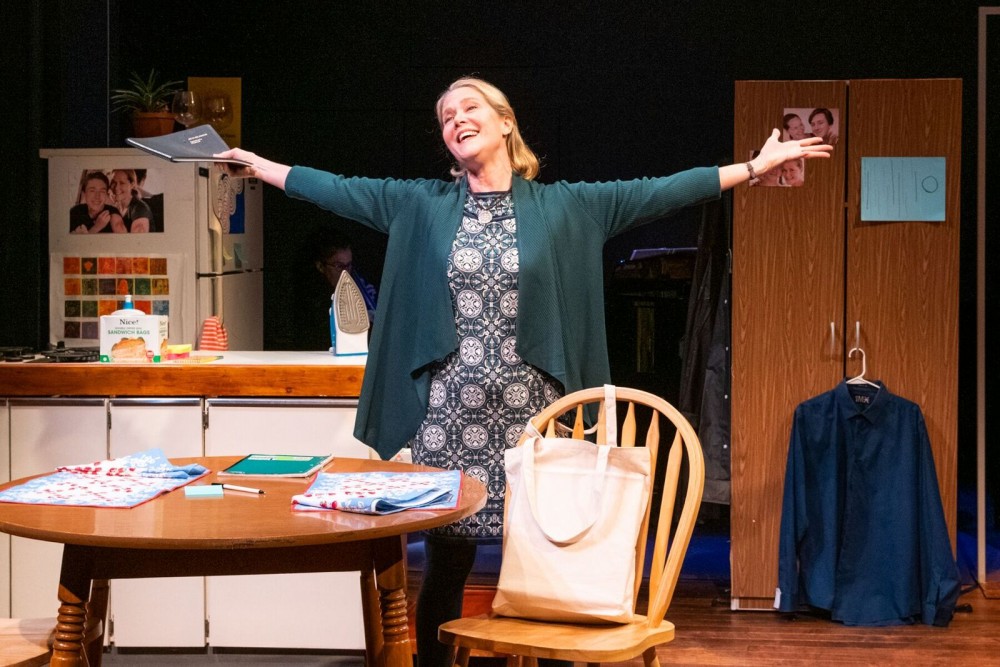By Samuel L. Leiter
Each New York theatre season brings a small number of one-act programs to the New York stage. Some are part of regular programs, like Summer Shorts at 59E59, some one-shots, like Final Follies, the Gurney plays recently at the Cherry Lane. Another regular visitor is Inner Voices, which has been providing such programs Off Broadway every two years since 2008.
These are commissioned events, overseen by artistic director Paulette Haupt, in which the plays are monologues set to music, the words and music being by either a separate writer and composer or, more often, the same person. I had reservations about Inner Voices 2014, was delighted by Inner Voices 2016, and was blown away by Inner Voices 2018.
Although each of these 30 to 40-minute pieces was written without knowledge of the others, they all touch on themes of loneliness and longing. A window figures prominently in the first two, while the latter two deal with sensitivity toward a wounded creature. The difficult-to-sing but powerfully expressive music is designed not to make you hum it but to support the emotional underpinnings of the lines. Everything is pulled together by gem-like performances and perceptive direction. Add to this Reid Thompson’s elegantly simple settings, Aaron Spivey’s exquisite lighting, and Brooke Cohen Brown’s just-right costuming, and you’re in for an unusual treat.
The living-room set for the serio-comic “Window Treatment,” by Deborah Zoe Laufer (words) and Daniel Green (music), and vividly directed by Portia Krieger, features a slim, downstage frame suggesting a picture window.
Staring out of it is Farah Alvin (It Shoulda Been You) as a woman—a doctor, in fact—whose insecurities force her to fill her time by fantasizing about the man across the way. He’s not that attractive but, opera glasses in hand, she can’t prevent her fevered imagination from taking her on a wild, nonstop, neurotically romantic journey through a series of shifting perturbations as he stirs her lust, jealousy, fears, hopes, regrets, curiosity, anger, disdain, worry, and anticipation.
Green’s music, played by musical director Paul Masse (piano) and Brandon Wong (vibraphone), is a roller coaster of emotive twists and turns. Alvin’s powerful voice rides it impressively as she embodies the woman’s manic physical and vocal transitions.
The evening turns sweetly poignant for Daniel Zaitchik’s “The Costume,” gently staged by Noah Himmelstein, and showing off the angelic presence of 11-year-old Finn Douglas. This remarkable discovery sings the complex score with his choirboy soprano in the guise of a pajamas-clad 10-year-old named Leo, adrift in his suburban bedroom on Halloween Eve, 1954.
Leo misses the attentions of his bedridden, single mom while nervously ministering to an injured pigeon—reflecting the bullied boy’s own anxieties—lying in a shoebox. Zaitchick’s lyrically melancholic script makes use of the evening’s other window, representing both freedom and, because it lets him observe his loving neighbors, as a reminder of his fatherless existence. The eponymous conclusion, perfectly blending Halloween with dramatic symbolism, is a masterstroke.
You won’t often see so glowing a young actor as Finn Douglas rivet your attention for such a stretch. The confluence of the sweetly innocent Leo and the iridescent (a word Leo learns) boy who plays him is the fabric from which theatre magic is woven. Musical director/pianist Deborah Abramson and violinists Patti Kilroy and Ludovica Burtone help make Douglas’s work memorable.
Speaking of iridescence, the show’s best-known artist, Rebecca Luker (The Secret Garden), is thrillingly radiant in Jeff Blumenkrantz’s touching “Scaffolding,” titled after a method of helping students learn. Luker plays the unmarried mother of Kevin. She criticizes other parents while overlooking her own helicopter hovering, a parental approach that comes into focus as Kevin prepares to interview for MIT.
Not that she doesn’t face obstacles. Kevin shows brilliance as “a human Google map” obsessed with urban train systems but struggles with social awkwardness. When he’s diagnosed as being on the autism spectrum, she finds it hard enough to admit the truth to herself, much less to her son. “Scaffolding” follows her arc from upbeat to what-did-I-do-wrong depression.
Victoria Clark’s astute direction inspires extraordinary work from the vocally and histrionically blessed Luker. Accompanied by musical director/pianist Benji Goldsmith and cellist Yari Bond, she wrings every minute for its fullest values.
Inner Voices 2018 is a melodically enchanting, intriguingly written, and shiningly polished trilogy of musical theatre jewels. If your inner voices are telling you to seek something iridescent, or, as “The Costume” defines that word, “shimmering, luminous, changing,” why not lend this show an ear, or even a tear?
Inner Voices 2018. Through November 17 at TBG Mainstage Theatre (312 West 36th Street, between Eighth and Ninth Avenues). www.premieres.nyc.org
Photos: Russ Rowland




